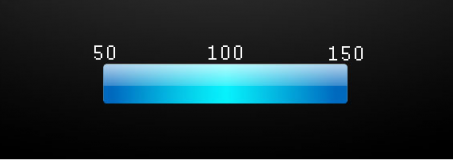
Look no further than Pikmin 3, the one game highlighted as an internally-developed game for traditional gamers. Funny that Miyamoto himself admitted the original Pikmin was "designed to appeal to high school girls." I'm not saying that's the only audience it appeals to—call me a school girl because I love Pikmin. But Nintendo's executives today try to paint the game as one made exclusively for the serious gamer. It brings back vivid memories of the 2008 holiday season when President Reggie infamously touted that Nintendo had prepared Animal Crossing for hardcore Wii gamers.
In a way, Nintendo is kind of like the American political Tea party, which has made waves for attempting to move politics so far to the right that the traditionally liberal Democrats now fill the role of the conservative Republicans. Think of it as a scale running from 0 to 100. A few years ago games for the core gamer had a value of 0. The "bridge" games (games that appealed equally to both hardcore and casual audiences) had a value of 50. Games targeting casual gamers had a value of 100.

With Nintendo's rearrangement of the scale, games for core gamers now have a value of 50. Bridge games have a value of 100. And the new games for casual players have expanded the range to 150.

In other words, Nintendo believes its bridge games (games like Pikmin and Animal Crossing) are now games for the core gamer. It shouldn't surprise anyone then to have seen the NintendoLand minigames as the highlight of its E3 2012 press conference. On Nintendo's new casual-to-core spectrum, NintendoLand is a game for core gamers.
Unfortunately for Nintendo, that same core audience still refers to the old model when evaluating games. This explains why most reactions to Nintendo's press conference reflected people who were disappointed, felt abandoned, or felt neglected. Nintendo tried to reassure these fans with third-party games like Batman and Mass Effect. Unfortunately, most core gamers own more than one console. Which means there's little appeal in the release of year old games they've already played.
For the past three decades long-time gamers like us have been Nintendo's only child, always demanding and often getting what we want. But now we have a new sibling and are forced to share. Change can be emotionally draining, but I'm sure we'll all come around in time. We'll start by telling ourselves it's just a console launch, that "the good games" will come around in a couple of years. But then we'll transition to anger and bargaining. We'll tell ourselves that we can make Wii U popular with third parties by buying their ports and re-releases. Then the depression will set in. Minigames! And finally, acceptance. We'll accept that Wii U will be home to a bunch of casual-focused games with the occasional brilliant reminder of Nintendo's core gaming legacy.
